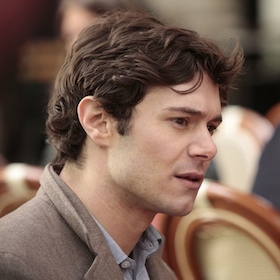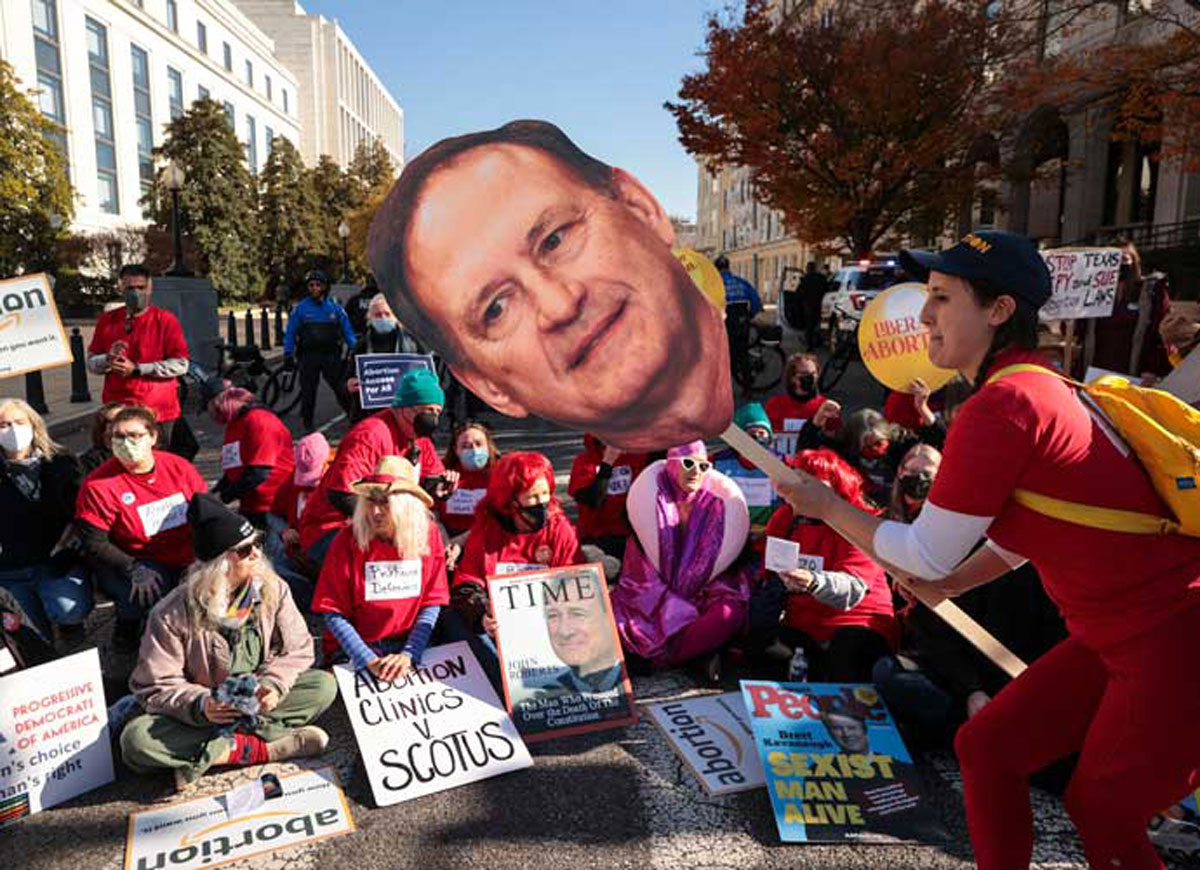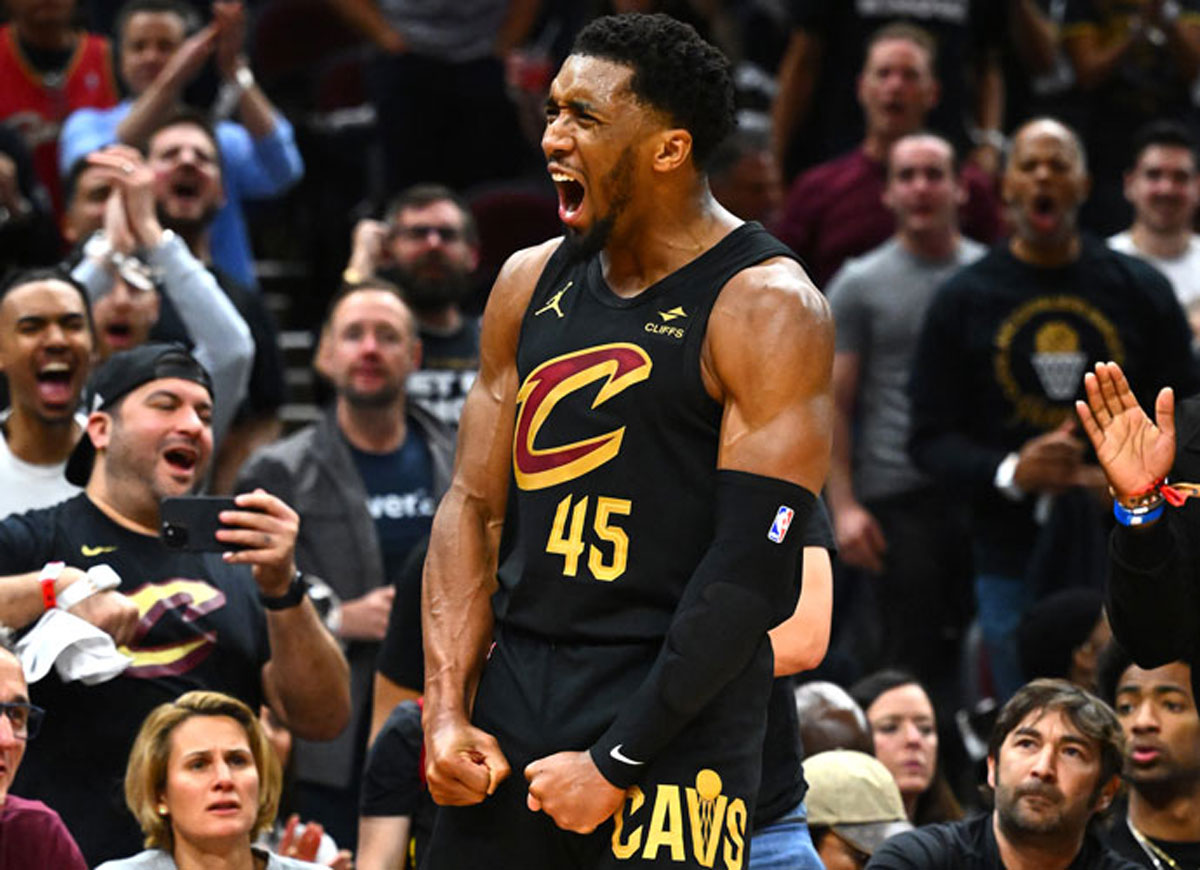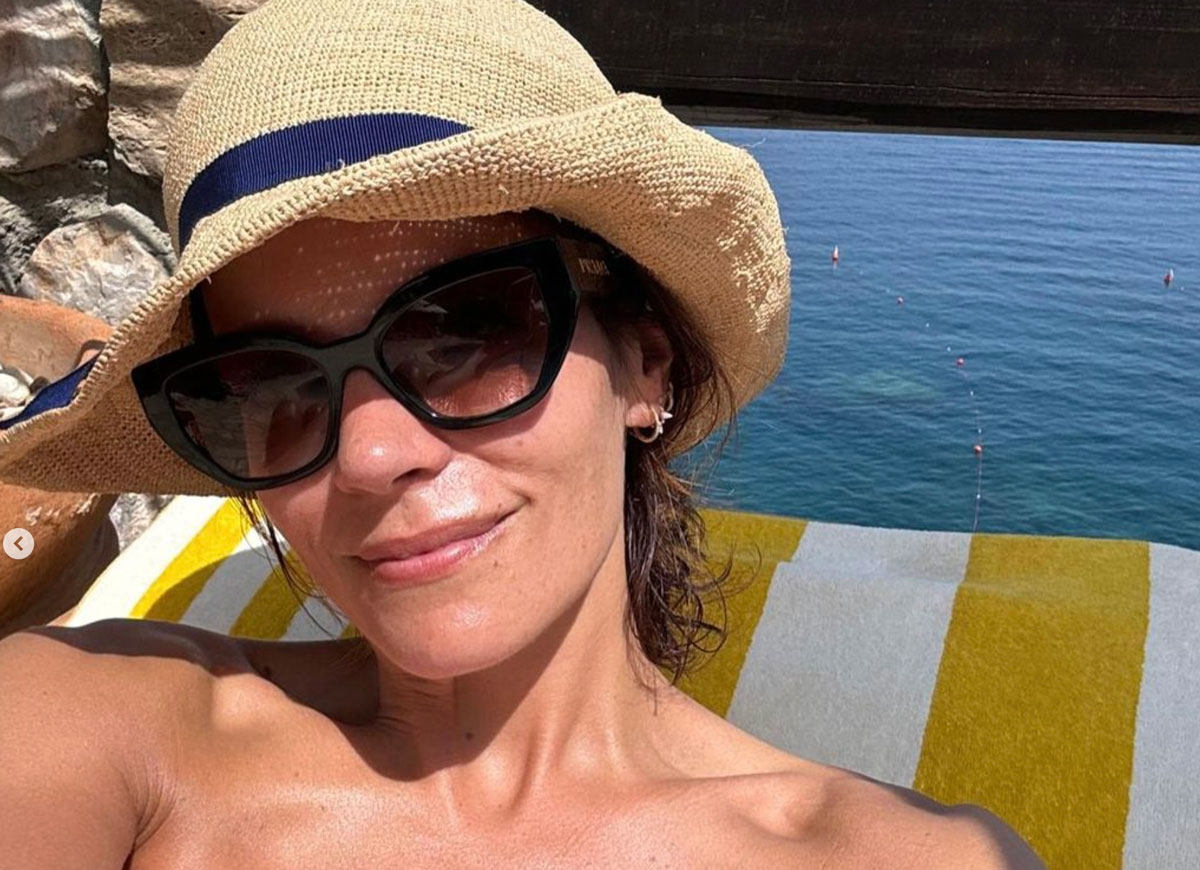Amazon Original Pilots: 'The Cosmopolitans' Could Be Worth A Season Pick Up

3.5/5
Is that the smell of desperation in the air? Then it must be Amazon’s (potential) pilot season offerings. This year most of the shows are half hour comedies, likely because they’re easier to make on the cheap, and hopeful to land the initial acclaim Transparent received so we’ll start with them first.
Really: 3 out of 5 stars
Really is created by and starring Jay Chandrasekhar and co-starring Sarah Chalke (Scrubs) and Selma Blair. The series focuses on a bunch of affluent friends in Chicago, going through the ennui of approaching middle age and the vast doldrums of being married with children.
While there are a number of true-to-life moments, some funny lines and some hints at honest complexity, Really doesn’t exactly take off the way it should. Part of it is because FX launched the similarly themed Married just a few weeks ago, and Really’s characters — due to their affluence — don’t really earn our sympathy. On accident, they just appear bored and stuck up.
However, if the series does get picked up, there is a good chance Chandrasekhar can iron out some of these flaws, particularly the fact that the script is predictable, hitting beats we expect at the exact moment we expect them to. The idea itself is a fine one – hence Married doing well – and Really just needs to find its voice.
The Cosmopolitans: 3 ½ out of 5 stars
The Cosmopolitans is another half hour comedy starring Adam Brody, Chloë Sevigny and Carrie MacLemore as a group of American expats living in Paris. The series embraces the pronounced, delusional smugness of wealthy expatriates taking a sabbatical abroad, showing it for what it is: an overwhelming desire to be accepted into a segment of society that they feel is greater than their own.
The comedy is either subtle or overt, depending on the situation, and overall biting — we’re made to laugh at the characters rather than with them, especially as Jimmy (Brody) and Hal (Jordan Rountree) repeatedly insist that they are Parisians, while the nearly wall-breaking Sandro (Adriano Giannini) provides commentary both on the laconic French and milksop Anglo men. All of the characters talk behind the others’ backs, and everyone is deeply concerned about their reputation and how they’re perceived by absolute strangers.
When not eviscerating expat culture — or perhaps its lack thereof — The Cosmopolitans offer interesting comparisons and clashes between Americans and Europeans, but also Europeans and other Europeans (French and Italians), Americans with other Americans (the city girl and the country girl). The easiest example to give is the explored difference in how a French man and an American man may attempt to engage women. The Frenchman is more relaxed and almost bureaucratic while the American is nervous and seeks almost immediate reassurance.
The fact that almost everyone has an affectation makes the characters, especially in a pilot, difficult to get a read on, though it’s likely part of the series’ philosophy, similar to Bret Easton Ellis’ thinking, that characters are most like people when they have no character because people have no character. In that way, the pilot ends rather abruptly, almost as if in mid-thought, with no clear arc established or suitably explored. Of the pilots, this one makes the greatest impression with an unused angle on a common story.
Red Oaks: 1 out of 5 stars
Given the setting and the premise — a coming of age story in the 1980s — Red Oaks desires to be an R-rated version of The Goldbergs, but ends up being more of a self-effacing version of The Wonder Years by way of Adventureland.
The dialogue is shallow to the point of lifelessness, and there are only vague meanderings of a plot and iconic moments ripped directly from Caddyshack and Fast Times at Ridgemont High.
Otherwise, Jennifer Grey and Paul Reiser show up because they were big in the 80s. Reiser’s Doug Getty is by far the best part of the pilot, though Grey, Ennis Esmer and Richard Kind are also given moments to shine, even if their characters are from every 80s parody movie ever made.
Now, we come to the dramas. Amazon has made it clear they want their own Breaking Bad, so much so that they were one of the companies adamant in wanting to pick up Hannibal if NBC cancelled it. Due to the fact that their dramas didn’t exactly land last year, they’ve only offered two this season: Hysteria and Hand of God.
Hysteria: 1 out of 5
Hysteria is a series that wants to be relevant very, very badly. It picks up common threads and fears that are thematic to today’s society (fear of bio/chemical attacks, the obsession with social media) but, like Hand of God, the series tries to be multiple things at once and ends up failing at doing anything competently. Mena Suvari stars as a disease specialist with a dark past who must go back to her hometown to deal with an illness (explained as an empathy pathogen) related to seeing certain images in YouTube videos. Money was spent to make this.
Despite doing what she could with the terrible plot and dialogue, Survari comes up short, as does the rest of this series and its overtly vague references to its dull backstory. The only victims (besides the audience) are the actors, including Laura San Giacomo (who looks embarrassed to be here), Josh Stewart and James McDaniel.
Hand of God: 1 out of 5
It’s not usually a good sign when the highlight of a pilot is its opening credits sequence. Hand of God somehow managed to get an impressive cast (Ron Perlman, Dana Delany, Andre Royo and Garrett Dilahunt) together for a show this is essentially a collection of random ideas thrown together. Any of these concepts possibly could have worked on their own — a corrupt judge searching for redemption; a man having a breakdown and becoming a vigilante (worked for Falling Down) — but having all of these things jammed together reeks more of desperation than of honest storytelling. It’s as if creator Ben Watkins was so skeptical that his morality play would get picked up, that he threw in as many broad crime clichés as possible. Unfortunately, any message or greater theme that he may have wanted to originally convey is lost here, thoroughly covered by standard, modern noir mist.
Common sense is quickly replaced by spectacle and surprise, while Ron Perlman sleepily plays a Ron Perlman character in Judge Pernell Harris. Perlman makes an attempt at emotion, particularly early on when visiting his son PJ who is in a coma. Unfortunately, the dialogue and the setup — “If you can hear me, just squeeze my hand. Come on, slugger, show me something” — fails Perlman, who’s trying to make the best of this lousy situation.
The plot and the subplots are by the numbers to the point of being insulting, especially in the supposed Golden Age of Television — violent men of god, a seedy mayor in a seedy real estate deal, a grifter and his girlfriend posing as clergy.
The only subplot that seems to have potential — and in turn doesn’t really seem to match with the rest of the show — is Jocelyn’s (Alona Tal). She’s Perlman’s daughter-in-law. Seven months ago she was brutally raped while her husband PJ was forced to watch. The rapist is yet to be caught. PJ put a bullet in his head after leaving a note blaming Jocelyn for everything. It’s the brutal and complex nature of the story and the way it’s played by Tal that makes you wish not only that the plot was given more attention, but also that it was part of a different show entirely. In Jocelyn, there’s story of coming to terms with a complex psychological trauma that is rife for exploration — and one that is often overlooked or quickly glossed over, even in modern TV where all of the worst aspects of humanity can be explored. The fact that the star isn’t a straight zero is because of the performances, particularly Tal’s, that try to overcome the been-there-done-that nature of the show.
In light of the series’ Godly pretensions, we should end this review with a prayer: Please, lord, give these actors better representation so they can get better roles.
RELATED ARTICLES
Get the most-revealing celebrity conversations with the uInterview podcast!







Leave a comment